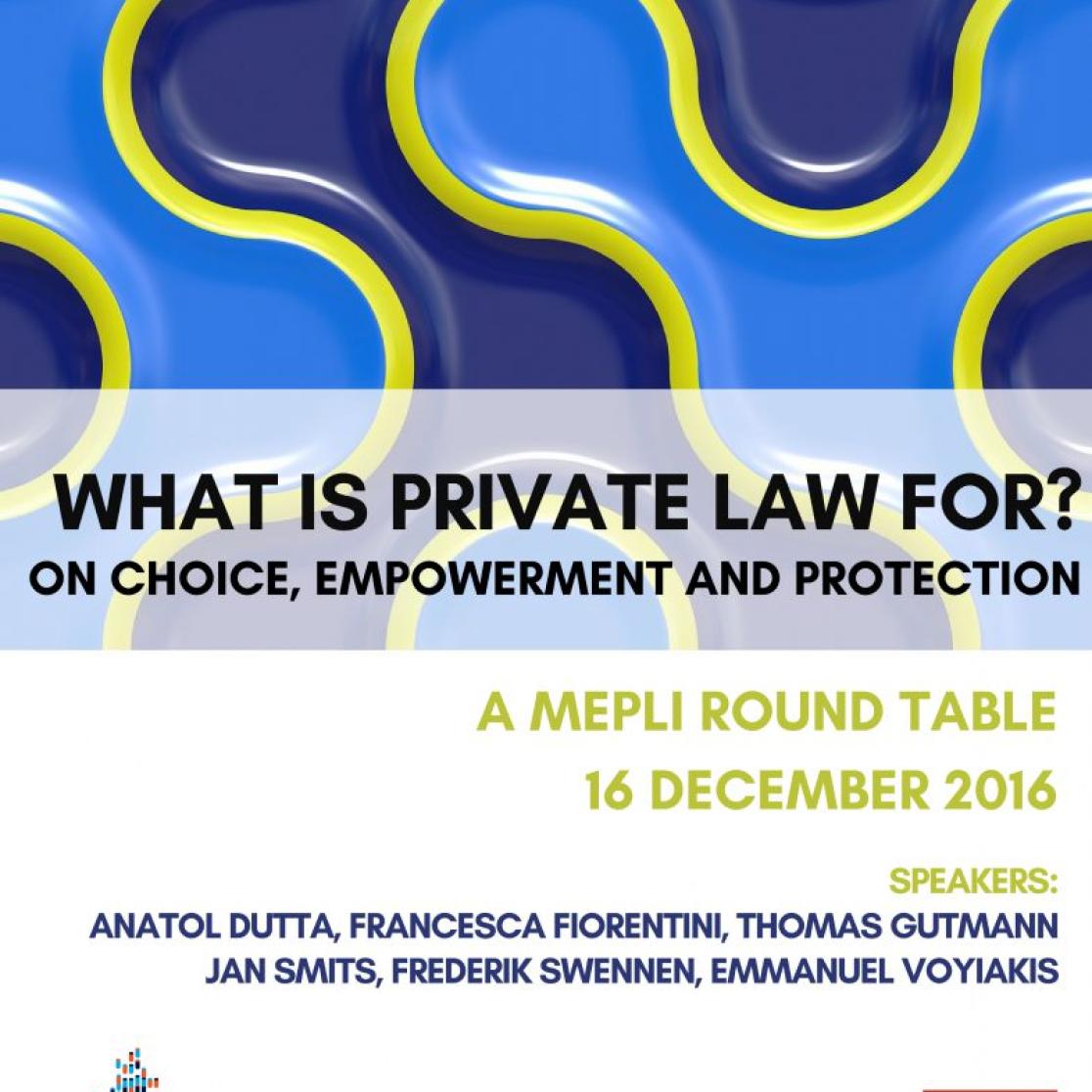What is Private Law For? A MEPLI Round Table Conference
This Round Table conference explores the limits of, and justification for, the exercise of private autonomy in five main fields of private law: the law of contract, tort, property, succession and family relationships.
Albert Camus famously wrote that ‘life is the sum of all your choices.’ Private lawyers could not agree more. At the core of private law lies the idea that individuals are allowed to know better than the State or anyone else what suits their needs and interests and to act accordingly. People may decide for themselves to contract, to dispose of their property before or after death, to start a family, to claim compensation for other people’s unlawful conduct, or to refrain from any of this. At the same time, private law balances individual autonomy with countervailing considerations that differ from one subfield to another. Concerns of distributive justice and protection of third parties seem prevalent in the law of property, while contract, family and succession law seem highly influenced by the wish to protect allegedly weaker parties and vulnerable family members. Tort law allows the wronged person to be restored in the position he was in prior to the wrong.
This Round Table conference explores the limits of, and justification for, the exercise of private autonomy in five main fields of private law: the law of contract, tort, property, succession and family relationships. This not only allows a much-needed intra-disciplinary account of how private autonomy works out throughout the whole of private law, it also connects grand theories on the goals of private law with legal doctrine. Does it make a difference for the role to be attached to choice whether private law is there to protect rights, pursue distributive justice, guide people’s behaviour or empower people? In short: what is it that private law is for?
This Round Table coincides with the publication of Advanced Introduction to Private Law by Jan Smits.
Please find more details for the event such as time, venue, and programme on this website: Click here.

Also read
-
Macrophages as key to treating liver fibrosis
Sabine Daemen is researching how certain macrophages can slow down fatty liver disease and fibrosis in order to develop new therapies.

-
Come to your senses: enrich your life and learning
Emilie Sitzia researches how we can rediscover our senses and use them to enhance our learning. This resulted in a colourfully illustrated book, 'Come to Your Senses', a senses-based learning guide.

-
Teacher Information Points at UM
UM faculties now host Teacher Information Points (TIPs) that offer local, “just-in-time” and on-demand support for teaching staff. The aim is simple: to provide help that is closely connected to day-to-day teaching practice.
